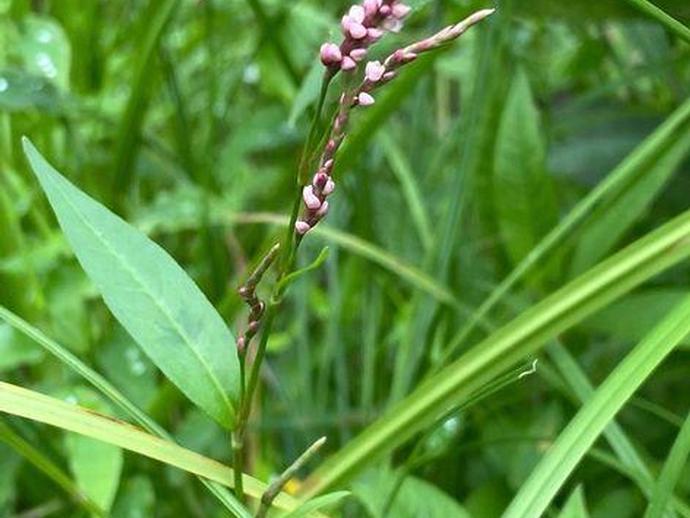December 12, 2021
We're reaching into the archives for today's #BenInNature update presented by our friends at Carter Bank & Trust! The following post was originally published on September 23, 2020.
Pennsylvania smartweed (Persicaria pensylvanica) is a flowering plant in the buckwheat family, and if you've been strolling through a damp area lately, you have probably seen it in bloom. These plants love moist, poorly-draining soil; these two photos were taken next to a creek and next to a roadside drainage ditch, respectively.
If you have drainage issues in your yard or garden, this plant can become a nuisance as it will often spread and crowd out your other plants. However, if you love birds, you might just want to keep it around! This plant provides both food and cover for a variety of birds. Ducks and geese love eating the seeds, along with doves, pheasants, bobwhites, and about 50 others! (Mice and raccoons also enjoy the seeds, so keep that in mind, too.)
While this plant is native to North America, it is considered an invasive species in South America and Europe. Interestingly, there's an extremely similar-looking related species native to Europe and Asia known as lady's thumb (Persicaria maculosa) which is a rapidly-spreading invasive species in the U.S.! The easiest way to tell the difference between the two is to look at the ocrea, which is a little sheath around the stem of the plant that forms where two or more stipules (which are little leaflike appendages that form at the base of a leaf) have grown. Lady's thumb has tiny hairs at the top of the ocrea, and Pennsylvania smartweed does not. And yes, I said that was the EASIEST way. I'm guessing the hard way involves running a DNA testing lab out of your home.
ABOUT #BenInNature
Social distancing can be difficult, but it presents a great opportunity to become reacquainted with nature. In this series of posts, Administrator of Science Ben Williams ventures outdoors to record a snapshot of the unique sights that can be found in the natural world. New updates are posted Monday - Friday, with previous posts highlighted on the weekends. This series of posts is made possible thanks to the support of VMNH Corporate Partner Carter Bank & Trust (www.cbtcares.com).
NATURE PHOTO IDENTIFICATIONS
If you discover something in nature that you would like help identifying, be sure to message us right here on Facebook with a picture (please include location and date of picture) and we'll have our experts help you identify it!

 Hours & Admissions
Hours & Admissions Directions
Directions

